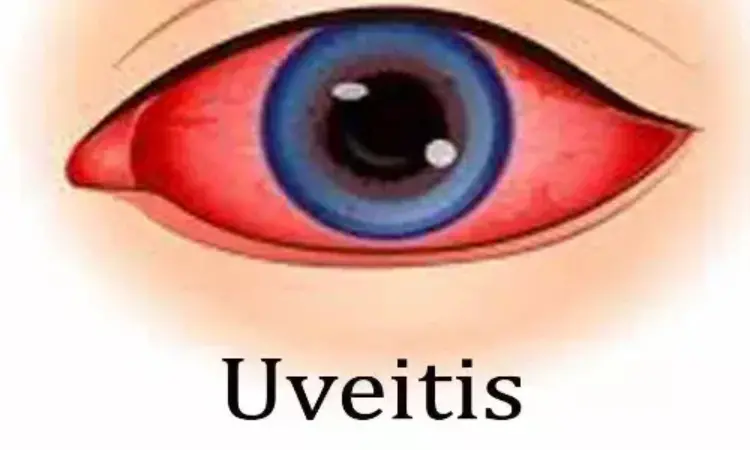- Home
- Medical news & Guidelines
- Anesthesiology
- Cardiology and CTVS
- Critical Care
- Dentistry
- Dermatology
- Diabetes and Endocrinology
- ENT
- Gastroenterology
- Medicine
- Nephrology
- Neurology
- Obstretics-Gynaecology
- Oncology
- Ophthalmology
- Orthopaedics
- Pediatrics-Neonatology
- Psychiatry
- Pulmonology
- Radiology
- Surgery
- Urology
- Laboratory Medicine
- Diet
- Nursing
- Paramedical
- Physiotherapy
- Health news
- Fact Check
- Bone Health Fact Check
- Brain Health Fact Check
- Cancer Related Fact Check
- Child Care Fact Check
- Dental and oral health fact check
- Diabetes and metabolic health fact check
- Diet and Nutrition Fact Check
- Eye and ENT Care Fact Check
- Fitness fact check
- Gut health fact check
- Heart health fact check
- Kidney health fact check
- Medical education fact check
- Men's health fact check
- Respiratory fact check
- Skin and hair care fact check
- Vaccine and Immunization fact check
- Women's health fact check
- AYUSH
- State News
- Andaman and Nicobar Islands
- Andhra Pradesh
- Arunachal Pradesh
- Assam
- Bihar
- Chandigarh
- Chattisgarh
- Dadra and Nagar Haveli
- Daman and Diu
- Delhi
- Goa
- Gujarat
- Haryana
- Himachal Pradesh
- Jammu & Kashmir
- Jharkhand
- Karnataka
- Kerala
- Ladakh
- Lakshadweep
- Madhya Pradesh
- Maharashtra
- Manipur
- Meghalaya
- Mizoram
- Nagaland
- Odisha
- Puducherry
- Punjab
- Rajasthan
- Sikkim
- Tamil Nadu
- Telangana
- Tripura
- Uttar Pradesh
- Uttrakhand
- West Bengal
- Medical Education
- Industry
Vitamin D Deficiency Linked to Higher Risk of Noninfectious Uveitis

A recent systematic review and meta-analysis exploring the relationship between vitamin D levels and noninfectious uveitis have revealed a striking association. The findings suggest that individuals with vitamin D deficiency face more than a twofold increased risk of developing noninfectious uveitis compared to those without such deficiency. This study was published in the Autoimmunity Reviews journal.
Conducted by a team led by William Rojas-Carabali, MD, from Nanyang Technological University, the study involved a meticulous analysis of numerous studies from databases such as Embase, PubMed, and Lilacs. Among over 900 articles initially screened, 11 studies were included for review and analysis.
The investigation covered a spectrum of study designs, including case-control, cohort, and cross-sectional studies, encompassing data from 6082 individuals with noninfectious uveitis. The analysis indicated that patients with noninfectious uveitis displayed notably lower 25(OH)D levels in serum compared to control groups.
In-depth meta-analyses revealed compelling trends: those who developed uveitis showcased significantly reduced vitamin D levels compared to the control group. This disparity persisted even when examining studies that measured vitamin D levels one year before the onset of uveitis (Standardized Mean Difference [SMD], -0.37; 95% CI, -0.56 to -0.17). Moreover, a meta-analysis of studies reporting odds ratios (ORs) indicated patients with noninfectious uveitis had a greater likelihood of low vitamin D levels 1 year before disease onset (OR, 2.04; 95% CI, 1.55 to 2.68; P = .00001).
However, the investigators highlighted the study's limitations, including its reliance on observational data, relatively smaller sample sizes, and inherent heterogeneity in the data. Despite these constraints, the findings strongly suggest a notable correlation between hypovitaminosis D and the elevated risk of noninfectious uveitis.
The study's lead author emphasized the importance of further research in this area to corroborate and expand upon these findings. Additionally, the need for standardized measurement techniques and cutoff values for serum vitamin D was highlighted to enhance the consistency and reliability of future meta-analyses.
These findings indicate a potential preventive strategy in managing noninfectious uveitis through vitamin D supplementation, providing a direction for clinicians in considering vitamin D deficiency screening and management in patients at risk for this ocular condition.
Reference:
Rojas-Carabali W, Pineda-Sierra JS, Cifuentes-González C, et al. Vitamin D deficiency and non-infectious uveitis: A systematic review and Meta-analysis. Autoimmun Rev. Published online December 3, 2023. doi:10.1016/j.autrev.2023.103497
Dr Riya Dave has completed dentistry from Gujarat University in 2022. She is a dentist and accomplished medical and scientific writer known for her commitment to bridging the gap between clinical expertise and accessible healthcare information. She has been actively involved in writing blogs related to health and wellness.
Dr Kamal Kant Kohli-MBBS, DTCD- a chest specialist with more than 30 years of practice and a flair for writing clinical articles, Dr Kamal Kant Kohli joined Medical Dialogues as a Chief Editor of Medical News. Besides writing articles, as an editor, he proofreads and verifies all the medical content published on Medical Dialogues including those coming from journals, studies,medical conferences,guidelines etc. Email: drkohli@medicaldialogues.in. Contact no. 011-43720751


